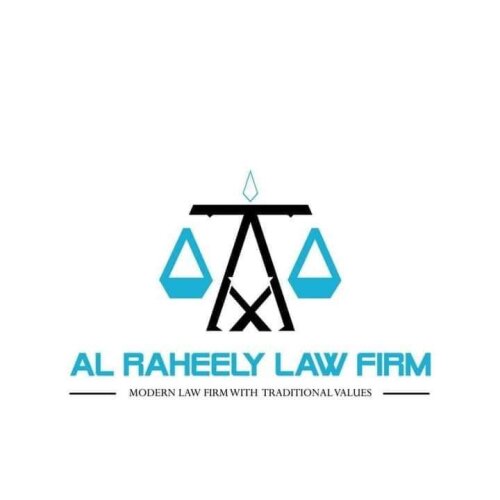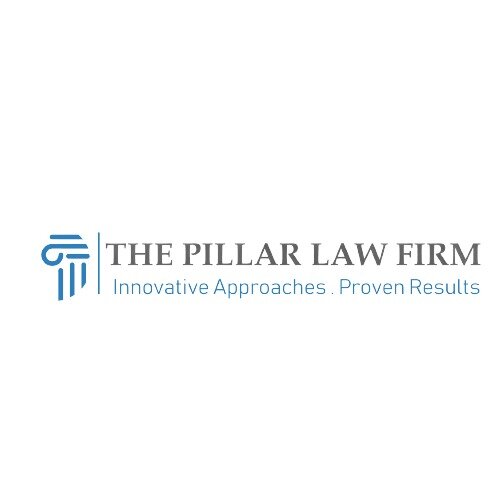Best Tax Increment Financing Lawyers in Egypt
Share your needs with us, get contacted by law firms.
Free. Takes 2 min.
Or refine your search by selecting a city:
List of the best lawyers in Egypt
About Tax Increment Financing Law in Egypt
Tax Increment Financing (TIF) in Egypt is a unique economic development tool used to support the financing of public infrastructure projects. TIF is designed to foster growth and development by reinvesting tax revenues obtained from increases in property values. In Egypt, TIF enables municipalities to use anticipated future tax revenues to finance present improvements, which are expected to generate those additional future revenues.
Why You May Need a Lawyer
There are several situations where seeking legal advice on Tax Increment Financing might be necessary:
- Project Planning and Implementation: If you are a developer or a municipality considering a TIF project, legal expertise is crucial in the planning and execution phases.
- Understanding Regulations: TIF involves navigating complex local laws and regulations, requiring the guidance of a qualified lawyer to ensure compliance.
- Drafting Agreements: Legal assistance is essential in drafting and reviewing TIF-related documents and agreements to protect your interests.
- Dispute Resolution: In cases of disagreements or conflicts related to TIF, a lawyer can provide necessary representation and advice.
- Financing and Investment: Financial structuring and securing investments often require legal insights to optimize benefits under TIF projects.
Local Laws Overview
The legislative framework governing Tax Increment Financing in Egypt includes several key aspects:
- Regulatory Bodies: Different governmental bodies oversee the approval and implementation of TIF projects.
- Economic Zones: TIF often focuses on specific economic or redevelopment zones where improvement is targeted.
- Tax Revenue Allocation: The laws define how taxes are allocated, calculated, and reinvested under TIF schemes.
- Eligibility and Approval Processes: Particular criteria and approval processes are required for TIF eligibility, involving municipal and national levels.
- Public-Private Partnerships: TIF often facilitates partnerships between private sectors and municipalities, demanding compliance with specific legal standards.
Frequently Asked Questions
What is Tax Increment Financing?
Tax Increment Financing is a method of financing public improvements by capturing future property tax increases generated by those improvements.
How does TIF promote development?
TIF funds infrastructure enhancements, making areas more attractive for private investments, which in turn increases property values and tax revenues.
Who can initiate a TIF project in Egypt?
TIF projects can be initiated by local governments, often in collaboration with private developers, to promote urban renewal.
Is public approval required for TIF projects?
Yes, TIF projects usually undergo public consultations and require governmental approvals to ensure transparency and public interest alignment.
How are TIF revenues distributed?
Revenues generated from the increase in property taxes are allocated specifically for financing improvements in the designated TIF area.
Can TIF funds be used for any type of project?
No, TIF funds are typically restricted to public infrastructure projects that serve a broader public good and stimulate economic growth.
What are the risks involved with TIF?
Financial risks include overestimation of revenue generation and potential deviations in project timelines or costs which might impact expected outcomes.
How long does a TIF district stay active?
The duration varies, but TIF districts often have a sunset clause defining their lifespan, typically ranging from 15 to 30 years.
Are there alternatives to TIF for funding projects?
Yes, alternatives include municipal bonds, grants, and other public-private financing arrangements tailored to specific project needs.
How can legal counsel assist with TIF projects?
Legal counsel provides assistance from initial planning to execution, offering guidance on compliance, negotiations, and risk mitigation strategies.
Additional Resources
Several resources can be invaluable for those seeking legal advice on TIF in Egypt:
- Ministry of Finance: Offers detailed information on fiscal policies and financing tools like TIF.
- General Authority for Investment: Provides support for investment projects and public-private partnerships in Egypt.
- Local Economic Development Offices: Helps coordinate local development projects, including TIF initiatives.
- Chamber of Commerce Egypt: Resource for businesses looking into TIF as a tool for development projects.
Next Steps
If you require legal assistance with Tax Increment Financing in Egypt, consider the following steps:
- Research: Start by understanding the basics of TIF and local regulations pertaining to your specific interests or concerns.
- Consult a Lawyer: Seek professional legal advice from a lawyer experienced in finance and local taxation law.
- Engage with Authorities: Connect with relevant governmental bodies to gather necessary information and guidance specific to your project.
- Proceed with Documentation: Ensure all documentation, agreements, and financial projections are aligned with legal requirements.
- Monitor Compliance: Work with your legal advisor to continuously monitor compliance and update project strategies as needed.
Lawzana helps you find the best lawyers and law firms in Egypt through a curated and pre-screened list of qualified legal professionals. Our platform offers rankings and detailed profiles of attorneys and law firms, allowing you to compare based on practice areas, including Tax Increment Financing, experience, and client feedback.
Each profile includes a description of the firm's areas of practice, client reviews, team members and partners, year of establishment, spoken languages, office locations, contact information, social media presence, and any published articles or resources. Most firms on our platform speak English and are experienced in both local and international legal matters.
Get a quote from top-rated law firms in Egypt — quickly, securely, and without unnecessary hassle.
Disclaimer:
The information provided on this page is for general informational purposes only and does not constitute legal advice. While we strive to ensure the accuracy and relevance of the content, legal information may change over time, and interpretations of the law can vary. You should always consult with a qualified legal professional for advice specific to your situation.
We disclaim all liability for actions taken or not taken based on the content of this page. If you believe any information is incorrect or outdated, please contact us, and we will review and update it where appropriate.
Browse tax increment financing law firms by city in Egypt
Refine your search by selecting a city.














